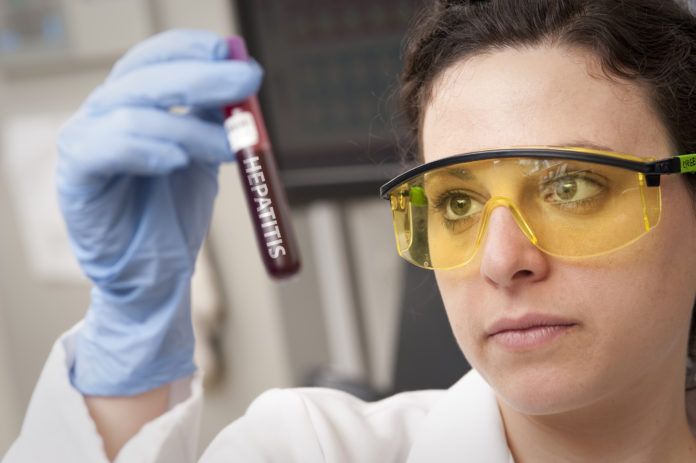As ICMR asks states to conduct serological surveys to find prevalence of COVID19, Roche says want to explore public private partnerships in India
Roche Diagnostics has welcomed a communication from the Indian Council of Medical Research to states asking them to conduct seroprevalence studies for COVID19 in India.
“Roche Diagnostics India welcomes ICMR’s communication that cites making available Roche COVID-19 antibody test for seroprevalence studies in India – including those on high-risk groups like healthcare workers – to plan the country’s pandemic management efforts in the future. Roche’s lab-based antibody test that runs on fully automated CLIA analysers with estimated peak testing capacity of 0.5 million tests a day is being made available across NABL approved and Government sites in India,” said Dr Shravan Subramanyam, spokesperson for Roche Diagnostics India.
ICMR has communicated a detailed plan to all the states to measure coronavirus exposure in general population as well as in high risk populations
In an attempt to decide the future course of action against the pandemic, ICMR has communicated a detailed plan to all the states to measure coronavirus exposure in general population as well as in high risk populations. This sero-survey will guide appropriate public health intervention. The numbers and frequency in different groups to be tested has been entrusted with states depending upon the requirement and situation in that particular area.
“The Roche Elecsys Anti-SARS-CoV-2 serology test that supports detection of antibodies against SARS-CoV- 2 has received the Import License issued by the Central Drug Standard Control Organization (CDSCO), due to the emergency health situation in the public interest. The test is CE IVD certified and has received USFDA emergency use authorisation (EUA). Roche’s world-class COVID-19 antibody test is already deployed in UK, Singapore and other countries to test for COVID-19 antibodies. We are committed to explore public-private partnerships to build scale and thereby access to Roche COVID- 19 antibody tests in India,” Roche added.
The groups that are to be tested for the survey are:
- Immuno-compromised patients: PLHIV, patients on immuno-suppressive treatment, TB, SARI, COPD, patients on dialysis to be considered for testing;
- Individuals in containment zones: In identified containment zones and buffer zones where large number/ cluster of cases have been identified as demarcated geographical areas with residential, commercial structures;
- Health Care Workers: Specifically, all doctors including specialists, nursing staff, support staff, sanitary and other staff including the staff at registration, pharmacists, client facing desk clerks etc. Those workers in health care settings who either faces patients (whether known COVID 19 +ve or not), involved in their care or are in environment of potentially shared spaces or handling fomites;
- Security personnel: All security personnel facing the visitors, conducting their security screening, physical checking and thermal screening. This includes CISF personnel involved in security especially of offices;
- Police and paramilitary personnel civil defense & volunteers: police personnel and volunteers involved in duties facing large number of individuals or those coming in contact with potentially infected individuals, fomites or settings/ places;
- Press corps: Press reporters covering field, interviews, press briefings, etc. and support staff;
- Rural, tribal population (after reverse migration): Migrant workers who have travelled back from urban and peri-urban areas to rural, tribal, hard to reach areas in the country as well as natives after coming in contact with returned migrants.
- Industrial workers or labour force: industry workers, daily wagers, migrant workers, temporary travel related workers, hospitality related works, service sector who are in large number or groups and has potential to spread transmission rapidly in workplace settings;
- Farmers, vendors visiting large markets: Farmers, sellers, brokers, purchasing vendors, distributors and other persons including drivers and labor by virtue of visiting crowded places like main markets where large exchange of materials happen between farmers and vendors during purchase and sell of vegetables etc.;
- Staff in municipal bodies: Municipal staff working in areas like sanitation, water supply, electricity, etc. where interactions with citizens is expected; and
- Drivers: Drivers of hospital ambulances, hearse, buses, auto, taxies, etc. who have been on work font faced large number of individual previously or going to face in future. Bus conductors, cleaners and helping staff also should be included;
- Banks, post, couriers, telecom offices: public or private banks, small or large branches of banks and post, telecom offices as well as couriers;
- Shops: Vendors and/ or owners as well as staff working in shops for essential goods, groceries, vegetables, milk, bread, chemists working at pharmacies, eateries and take away restaurants, etc.;
- Air travel related staff: All ground staff, security staff, janitors, sanitation staff, flight captains and crew for domestic and international as well as cargo may be considered;
- International operations: All members of overseas operations for evaluation;
- Congregate settings: People staying or working in slums with very high population density with poorly ventilated building, structures. Persons staying in institutional settings like old age homes, orphanage, asylums, shelters for homeless, hostels, etc. may also be considered;
- Prisons: All prisoners with or without symptoms whenever there is a batch transfer or reported symptomatic.


